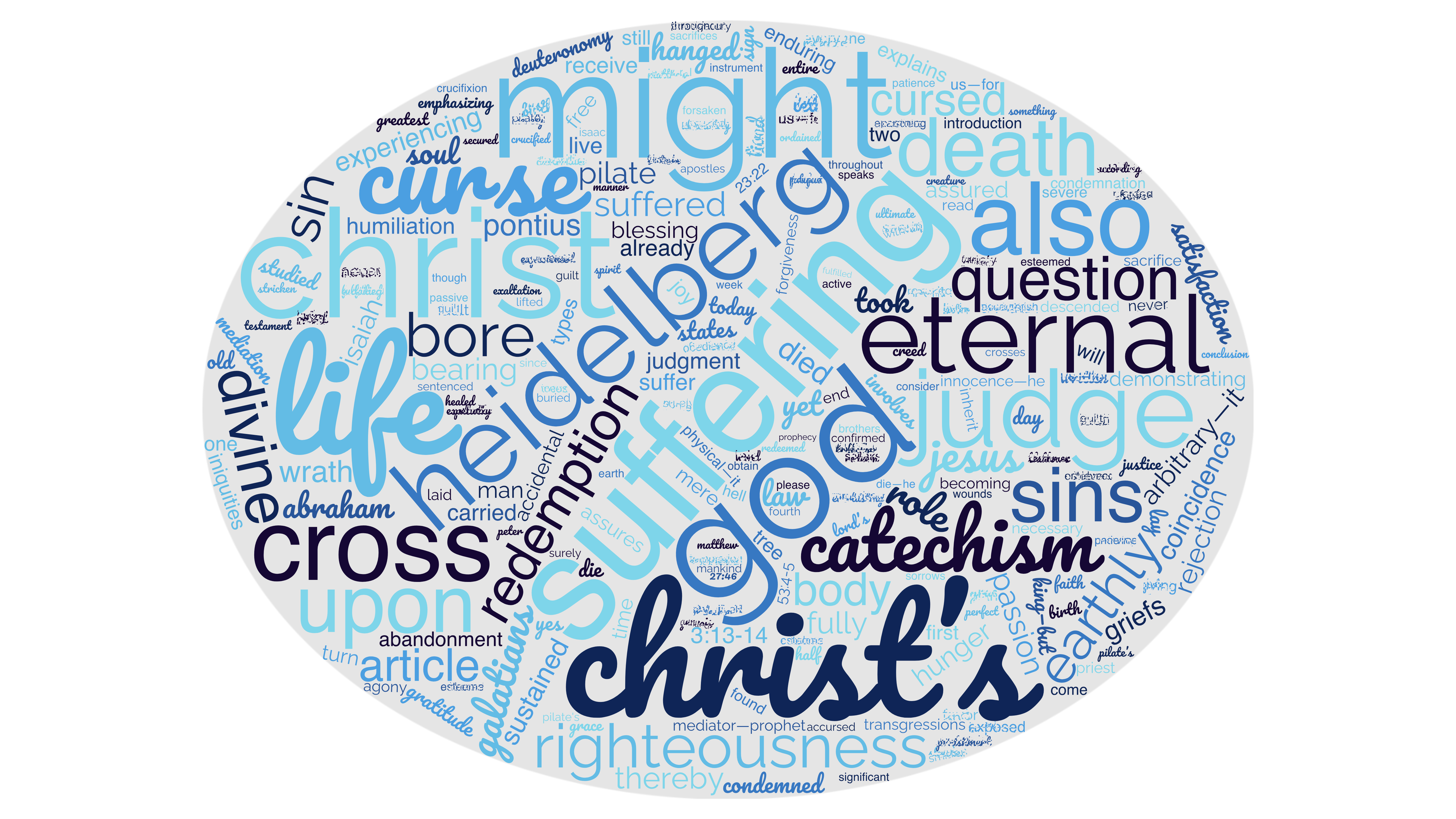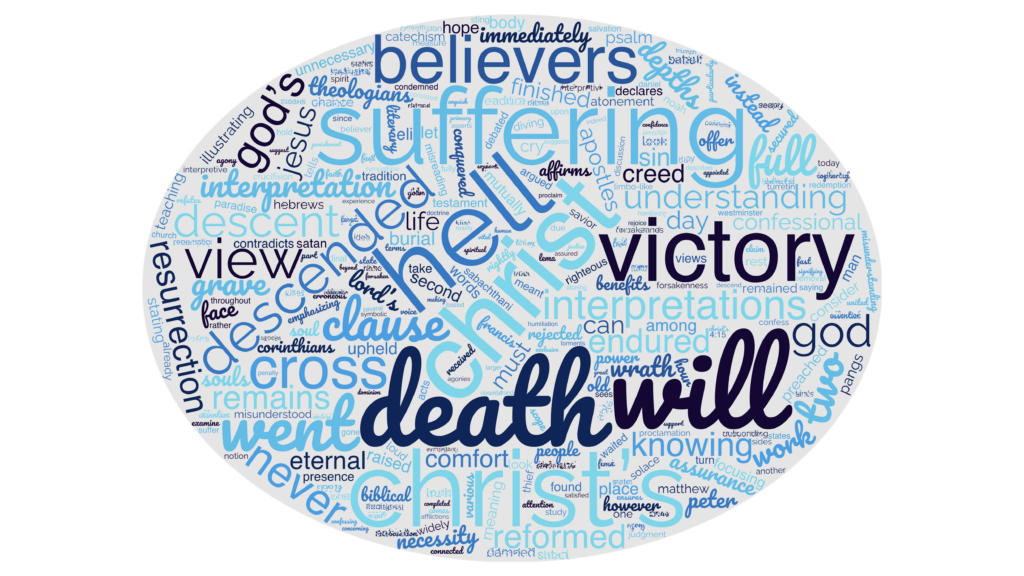Heidelberg Catechism Lord’s Day 15 Questions 37, 38, and 39

Christ’s Suffering and Our Redemption
Introduction
Please turn to Lord’s Day 15 of the Heidelberg Catechism. We will also read from Galatians 3:13-14:
“Christ redeemed us from the curse of the law by becoming a curse for us—for it is written, ‘Cursed is everyone who is hanged on a tree’—so that in Christ Jesus the blessing of Abraham might come to the Gentiles, so that we might receive the promised Spirit through faith.”
Today, we consider the Fourth Article of the Apostles’ Creed:
“He suffered under Pontius Pilate, was crucified, died, and was buried; He descended into hell.”
This week, we focus on the first half of this article, examining Christ’s suffering. We have already studied Christ’s role as Mediator—Prophet, Priest, and King—but His mediation also involves two states: humiliation and exaltation. Article 4 speaks of Christ’s humiliation, from His birth to His death, emphasizing His suffering, not just during the Passion but throughout His entire life.
1. Why Did Jesus Have to Suffer?
(Heidelberg Catechism, Question 37)
The catechism explains:
“That He, all the time that He lived on earth, but especially at the end of His life, sustained in body and soul the wrath of God against the sins of all mankind, that so by His passion, as the only propitiatory sacrifice, He might redeem our body and soul from everlasting damnation and obtain for us the favor of God, righteousness, and eternal life.”
Jesus suffered for us. Without His suffering, there would be no forgiveness of sins or eternal life. Divine justice required satisfaction, and since no mere creature could accomplish this, Christ, fully God and fully man, bore our sins. As 1 Peter 2:24 states:
“He Himself bore our sins in His body on the tree, that we might die to sin and live to righteousness. By His wounds, you have been healed.”
His suffering was not only passive (enduring punishment) but also active (living in perfect obedience to God’s law). He experienced hunger, fatigue, rejection, temptation, and ultimately, the agony of the cross. But His greatest suffering was not physical—it was bearing the wrath of God. On the cross, He cried, “My God, my God, why have You forsaken Me?” (Matthew 27:46), experiencing divine abandonment so that we might never have to.
2. Why Did Christ Suffer Under an Earthly Judge?
(Heidelberg Catechism, Question 38)
“That He, being innocent, and yet condemned by a temporal judge, might thereby free us from the severe judgment of God to which we were exposed.”
Pontius Pilate’s role was no coincidence. God, the ultimate Judge, ordained that Christ would be condemned by an earthly judge, demonstrating that He bore our guilt. Though Pilate found no fault in Him (Luke 23:22), he still sentenced Him to death, fulfilling prophecy (Isaiah 53:4-5):
“Surely He has borne our griefs and carried our sorrows; yet we esteemed Him stricken, smitten by God, and afflicted. But He was pierced for our transgressions; He was crushed for our iniquities.”
Pilate’s condemnation confirmed Christ’s innocence—He suffered not for His own sins but for ours. This assures believers that their judgment has already been carried out upon Christ.
3. Why Was the Cross Necessary?
(Heidelberg Catechism, Question 39)
“Yes, there is something more, for thereby I am assured that He took upon Himself the curse which lay upon me, because the death of the cross was accursed of God.”
The manner of Christ’s death was significant. According to Deuteronomy 21:23,
“A hanged man is cursed by God.”
Christ did not merely die—He died as one cursed. This assured us that He took upon Himself the curse of sin so that we might inherit the blessing of Abraham (Galatians 3:13-14). His crucifixion also fulfilled Old Testament types and shadows, such as Isaac being laid on the wood (Genesis 22) and the sacrifices lifted up before God.
The cross is not only the instrument of Christ’s suffering but also the sign of our victory. Because He bore the curse, we receive grace, righteousness, and eternal life.
Conclusion
Brothers and sisters, Christ’s suffering was not accidental or arbitrary—it was the divine plan for our redemption. Let us, then, live in gratitude, bearing our own crosses with patience, knowing that His suffering has secured our eternal joy.
Heidelberg Catechism, Lord’s Day 15, Questions 37, 38, & 39 “Christ’s Sufferings For Us”



Leave a Reply